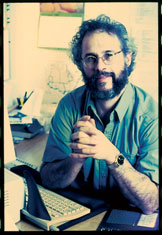By Steve Oppenheimer
(December 2001)
Back in the ’60s and ’70s, the federal government strictly regulated the cross-ownership of radio, television stations, and newspapers. The regulations were aimed at preventing a small number of corporations and individuals from owning multiple media outlets in the same market, thus dominating news dissemination.
In recent years, the government has loosened those laws considerably; the result is an ever-increasing consolidation of major media. It affects not only the news we get from commercial radio and TV stations but also the music we hear – and the music we aren’t allowed to hear.
For an example of what could happen, we need look no further than the recent flap caused by Clear Channel Communications’ ill-considered music blacklist. The list turned out to be a tempest in a teapot, but only because the company chose to weasel out of it, more or less. In case you’ve been living in a cave – perhaps not a bad idea nowadays – allow me to explain.
Clear Channel is the corporate owner of more than 1,170 radio stations across the United States (and 240 elsewhere), representing 110 million listeners and 20 percent of industry revenue. That makes it easily the largest owner of radio stations in the country. In the San Francisco Bay Area, where EM is based, the company owns two AM and five FM stations. Obviously, Clear Channel has a lot to say about what music gets played in a multitude of markets.
On September 13, some manager at Clear Channel – exactly who is not clear as of this writing – issued a list of 162 songs that the company urged its program directors not to play, on the grounds that the songs’ lyrics or titles could be offensive in the current political climate. It is important to note that the program directors were advised but not ordered to respect the blacklist, and indeed, some openly disregarded it.
The list was absurd: banned were Louis Armstrong’s reflective “What a Wonderful World,” Simon and Garfunkel’s angelic “Bridge Over Troubled Water”” and John Lennon’s pacifist “Imagine.” But the real problem was that one megacorporation could make decisions for a large part of the U.S. radio audience.
Confronted with bad publicity, Clear Channel’s top management hemmed and hawed and veered from excuse to excuse. Corporate spokespeople said that upper management had nothing to do with the list, that it was the work of a middle manager. At no time was the list retracted – at least, not publicly – but the company stated that individual program directors would be free to make their own choices.
At press time, the Clear Channel fiasco is fading. But as Grandfather said in Peter and the Wolf, “What if Peter had not caught the wolf?” Given the current social climate, had Clear Channel taken a subtler hard line and stayed with its “recommended” blacklist, it might have suffered only minor PR damage. Because its reach is so great, that policy would have had a huge impact on the music heard on commercial radio.
We have all had much to think about and do in recent weeks and months. I suggest that we keep the prevention of media consolidation high on our to-do list.
